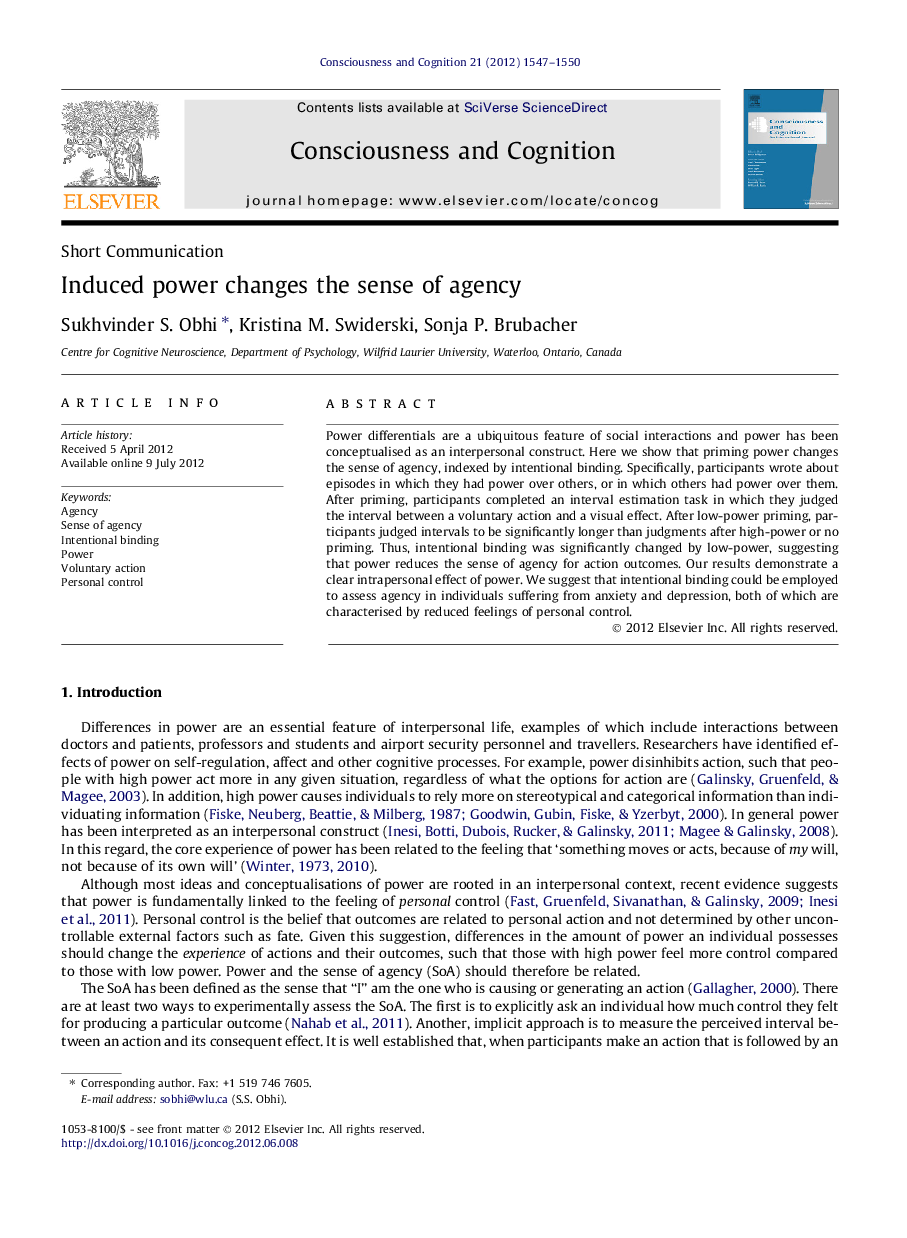| Article ID | Journal | Published Year | Pages | File Type |
|---|---|---|---|---|
| 927643 | Consciousness and Cognition | 2012 | 4 Pages |
Power differentials are a ubiquitous feature of social interactions and power has been conceptualised as an interpersonal construct. Here we show that priming power changes the sense of agency, indexed by intentional binding. Specifically, participants wrote about episodes in which they had power over others, or in which others had power over them. After priming, participants completed an interval estimation task in which they judged the interval between a voluntary action and a visual effect. After low-power priming, participants judged intervals to be significantly longer than judgments after high-power or no priming. Thus, intentional binding was significantly changed by low-power, suggesting that power reduces the sense of agency for action outcomes. Our results demonstrate a clear intrapersonal effect of power. We suggest that intentional binding could be employed to assess agency in individuals suffering from anxiety and depression, both of which are characterised by reduced feelings of personal control.
► Intentional binding is the reduction in perceived time between actions and effects. ► Intentional binding is thought to index the sense of agency. ► Power is thought to be related to the feeling of personal control. ► We primed power and found intentional binding was affected by low power priming. ► Power priming thus affects the sense of agency as indexed by intentional binding.
